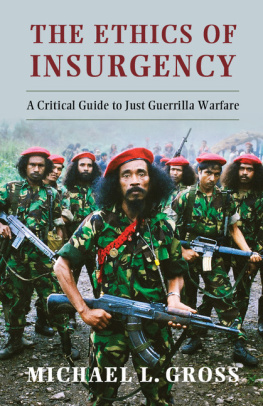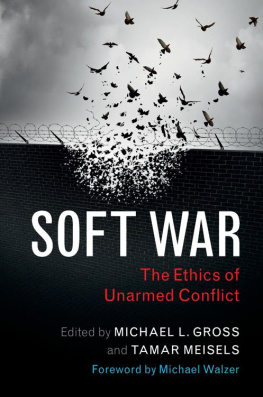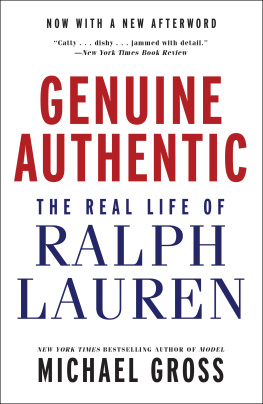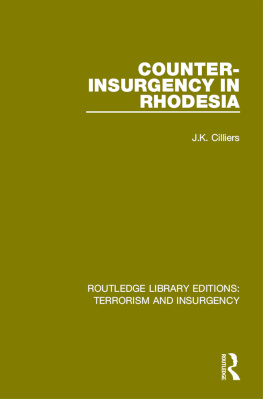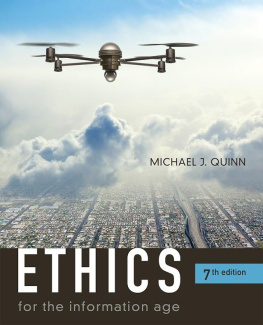The Ethics of Insurgency
As insurgencies rage, a burning question remains: How should insurgents fight technologically superior state armies? Commentators rarely ask this question because the catchphrase we fight by the rules, but they dont is nearly axiomatic. But truly, are all forms of guerrilla warfare equally reprehensible? Can we think cogently about just guerrilla warfare? May guerrilla tactics such as laying improvised explosive devices (IED), assassinating informers, using human shields, seizing prisoners of war, conducting cyber strikes against civilians, manipulating the media, looting resources, or using nonviolence to provoke violence prove acceptable under the changing norms of contemporary warfare? The short answer is yes, but modern guerrilla warfare requires a great deal of qualification, explanation, and argumentation before it joins the repertoire of acceptable military behavior. Not all insurgents fight justly, but guerrilla tactics and strategies are also not always the heinous practices that state powers often portray them to be.
MICHAEL L. GROSS is a professor in, and the head of, the School of Political Science at the University of Haifa, Israel. His articles have appeared in Political Studies , Social Forces , the New England Journal of Medicine , Political Research Quarterly , Journal of Applied Philosophy , the American Journal of Bioethics , the Journal of Military Ethics , the Journal of Medical Ethics , and Political Psychology . His books include Ethics and Activism (Cambridge University Press, 1997), Bioethics and Armed Conflict (2006), Moral Dilemmas of Modern War: Torture, Assassination, and Blackmail in an Age of Asymmetric Conflict (Cambridge University Press, 2010), and an edited volume, Military Medical Ethics for the 21st Century (2013). He serves on regional and national bioethics committees in Israel and has led workshops and lectured on battlefield ethics, medicine, and national security for the U.S. Army Medical Department at Walter Reed Medical Center, the U.S. Naval Academy, the International Committee of Military Medicine, the Dutch Ministry of Defense, and the Medical Corps and National Security College of the Israel Defense Forces.
The Ethics of Insurgency
A Critical Guide to Just Guerrilla Warfare
Michael L. Gross
University of Haifa
32 Avenue of the Americas, New York, NY 10013-2473, USA
Cambridge University Press is part of the University of Cambridge.
It furthers the Universitys mission by disseminating knowledge in the pursuit of education, learning, and research at the highest international levels of excellence.
www.cambridge.org
Information on this title: www.cambridge.org/9781107684645
Michael L. Gross 2015
This publication is in copyright. Subject to statutory exception and to the provisions of relevant collective licensing agreements, no reproduction of any part may take place without the written permission of Cambridge University Press.
First published 2015
Printed in the United States of America
A catalog record for this publication is available from the British Library.
Library of Congress Cataloging in Publication data
Gross, Michael L., 1954
The ethics of insurgency : a critical guide to just guerrilla warfare /
Michael L. Gross, University of Haifa.
pages cm.
Includes bibliographical references and index.
ISBN 978-1-107-01907-2 (hardback) ISBN 978-1-107-68464-5 (pbk.)
1. Guerrilla warfare Moral and ethical aspects. 2. Irregular warfare Moral and
ethical aspects. 3. Insurgency Moral and ethical aspects. 4. Just war doctrine.
5. Military ethics. I. Title.
U240.G67 2015
172.42--dc23 2014020943
ISBN 978-1-107-01907-2 Hardback
ISBN 978-1-107-68464-5 Paperback
Cambridge University Press has no responsibility for the persistence or accuracy of URLs for external or third-party Internet websites referred to in this publication and does not guarantee that any content on such websites is, or will remain, accurate or appropriate.
From Ada to Ayala
Contents
Tables
Preface
Writing about war, I often mistype the word casualties, leaving me to wonder what is casual or causal about the harm befalling combatants and noncombatants. Similarly, as a student of armed conflict, I often wonder what is civil about civilians or civil war. Casual suggests the chance or accidental nature of wartime injuries and deaths. Causal, on the other hand, directs our attention away from chance and toward a discernible sequence of events that result in injury or death. Civil connotes a measure of respect for normative behavior and, therefore, responsibility on the part of all participants, including soldiers, civilians, and bystanders, for the goings on in wartime.
Responsibility and liability do not change much whether one considers war from the perspective of states or insurgents. In many ways, therefore, The Ethics of Insurgency is a sequel to Moral Dilemmas of Modern War . Both books question the moral and legal limits imposed on state and non-state actors in modern warfare. In Moral Dilemmas I asked how states may fight successfully against guerrillas who employ terrorism and fight from within civilian populations. My answer, I thought, was rather modest. I did not advocate dogmatic adherence to existing law, nor did I advocate jettisoning the law in its entirety. Rather, I hoped that the ethical principles that protect the basic rights of combatants and noncombatants could guide me as I threaded my way through the demands of ethics and the exigencies of modern battle. The result was to lend qualified support to targeted killing and various nonlethal weapons and to lower the bar on harming civilians who provided significant support to their sides war-fighting efforts.
The response was spirited. Some reviewers condemned any attempt that they thought might weaken the law and erode the already meager protections that noncombatants enjoy. Many others, however, were happy for any effort to give state armies some additional maneuvering room to battle insurgents. This played well to a certain realist and maybe hawkish community. But it also came with many caveats about just war that the hawks ignored. While the history of international humanitarian law (IHL) and the law of armed conflict (LOAC) is sufficiently dynamic to make room for change, however belated, attempts to fiddle with the existing rules of war must always be taken with care and only in the context of just war: wars of self-defense, self-determination, or humanitarian intervention. This caveat is important because the slippery slope is always present. During a workshop with military and law enforcement officers, I once discussed the constraints that the rules of engagement pose for NATO. It was not long before officers from less enlightened domains Nigeria, China, and Zimbabwe jumped up and complained about the restrictions that the law of war imposes. When I tried to point out that it was a long and inadmissible jump from fighting Al Qaeda to suppressing internal dissent, they admonished me for my hypocrisy: We are fighting terror too, they staunchly declared.
Addressing the rules of war that states must follow is only half the project because the very same concerns bedevil guerrilla warfare. Guerrillas and insurgents, too, want to know how they can fight against superior state armies, and I try to provide an answer guided by the moral principles that protect the rights of combatants and noncombatants. The result is to think about just guerrilla war and here, too, I am inclined to offer qualified support for human shields, rockets and missiles, hostage taking, cyber-warfare, media manipulation, and efforts to disable civilians who take an active role in armed conflict. Now, the same hawkish community that liked the first project is unlikely to be happy. This brings me back to NATO officers who complain loudly about how unfair things are: We, they declare, have to obey the law of war while guerrillas and terrorists flout it openly. But broaching the same subject to, say, a group of Palestinian Israeli lawyers only brings derision. For them, the law of war is also discriminatory and obstructionist, but in quite the opposite way that states perceive. LOAC, they say, only condemns guerrilla tactics while leaving plenty of room for strong state armies to do whatever they want.



